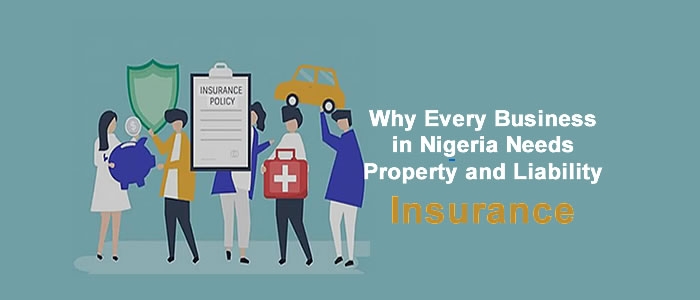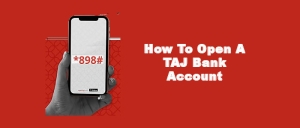
The Hidden Risks of Doing Business in Nigeria Running a business in Nigeria comes with great opportunities — and equally significant risks. From thriving tech startups in Lagos to manufacturing companies in Kano, every business faces the potential of unforeseen events that can cause serious financial loss.
Fires, floods, theft, vandalism, and lawsuits are not uncommon. Unfortunately, many Nigerian businesses operate without any form of insurance protection. When disasters strike, these companies often struggle to recover, leading to bankruptcy or permanent closure.
Property and liability insurance provide a critical safety net that shields businesses from these unexpected losses. Yet, a large percentage of small and medium-sized enterprises (SMEs) still see insurance as an unnecessary expense rather than a smart investment.
This article explains why every business in Nigeria — regardless of size or industry — needs property and liability insurance, what they cover, and how they can ensure business continuity and financial stability.
Understanding Property and Liability Insurance
Before we explore why these insurance types are essential, it’s important to understand what they mean.
1. Property Insurance: Property insurance protects a company’s physical assets — buildings, equipment, furniture, inventory, and other valuables — against damage or loss caused by incidents like fire, theft, flood, or vandalism.
For example, if a factory catches fire or an office is burgled, property insurance ensures the business is compensated for the damaged or stolen items, reducing downtime and financial burden.
2. Liability Insurance: Liability insurance protects businesses from legal claims and lawsuits that may arise due to injuries, accidents, or damages caused to third parties.
If a customer slips on your business premises or a product you sell causes harm, liability insurance covers legal fees, settlements, and compensation costs.
In Nigeria’s growing commercial landscape, where customer expectations and regulatory standards are rising, liability insurance has become more important than ever.
The Nigerian Context: Events like fire outbreaks in markets (Balogun Market in Lagos, for instance), warehouse explosions, and flood disasters show just how vulnerable Nigerian businesses are. Without adequate insurance, even one unfortunate event can wipe out years of hard work.
Why Property and Liability Insurance Are Essential for Nigerian Businesses
Protection Against Fire and Natural Disasters
Fire accidents remain one of the most common risks for Nigerian businesses, especially in congested urban areas. Property insurance ensures quick recovery by covering repair or replacement costs of affected assets.
Floods and storms, particularly during the rainy season, can destroy warehouses, inventory, and office buildings. Insurance cushions such losses, keeping the business afloat.
2. Safeguarding Against Theft and Vandalism
Security issues and theft are major concerns in Nigeria. With property insurance, stolen assets or equipment can be replaced without draining business capital.
3. Covering Legal Liabilities
Accidents happen — whether it’s a customer injured on your premises or an employee getting hurt at work. Liability insurance covers compensation, medical costs, and legal fees, protecting your business reputation and finances.
4. Meeting Legal and Contractual Requirements
Some government contracts and large corporations require suppliers or contractors to have valid liability insurance before partnership. Without it, a business might miss out on lucrative opportunities.
5. Business Continuity and Reputation
A business that quickly recovers from setbacks maintains customer trust. Insurance ensures smooth operations even after unexpected events, reinforcing your brand’s reliability and professionalism.
The Cost of Ignoring Insurance in Business
Many Nigerian entrepreneurs avoid insurance due to misconceptions or cost concerns, but the real cost of being uninsured is far greater.
1. Financial Ruin After Disaster
Without insurance, replacing damaged assets or settling lawsuits can cripple cash flow. Some businesses never recover, leading to closure.
2. Loss of Investor and Client Confidence
Investors, clients, and partners are more confident dealing with insured businesses because it shows responsibility and risk awareness.
3. Legal Penalties
Certain industries, like construction, logistics, and oil & gas, require mandatory insurance coverage under Nigerian law. Operating without it can attract penalties or disqualification from contracts.
4. Employee and Customer Distrust
Employees want to feel safe working for a company that values their well-being. Similarly, customers are more likely to trust a business that can handle claims responsibly.
5. Slower Recovery from Losses
Insurance speeds up recovery by providing immediate funds for repair or compensation, helping the business resume operations quickly.
How to Choose the Right Property and Liability Insurance in Nigeria
Selecting the right insurance plan requires careful consideration. Here’s a step-by-step guide:
1. Assess Your Business Risks
Identify what kind of risks your business faces — fire, theft, natural disasters, or lawsuits. A warehouse and a restaurant, for instance, face different risk levels.
2. Compare Insurance Providers
Look for licensed insurance companies or brokers registered under the National Insurance Commission (NAICOM). Compare coverage options, premiums, and claim processes.
3. Understand the Policy Details
Read the fine print. Know what is covered, what is excluded, and the limits of compensation. For example, some policies might exclude damages caused by war or intentional acts.
4. Evaluate Premium Costs vs. Coverage Value
A cheaper premium might mean limited coverage. Focus on long-term protection rather than short-term savings.
5. Check Claim Settlement Reputation
A good insurer pays claims promptly. Research reviews or ask other businesses about their experience before choosing a provider.
6. Consider Bundled Policies
Some insurers offer combined property and liability packages at discounted rates. Bundled plans are cost-effective and provide comprehensive protection.
Top Insurance Companies Offering Property and Liability Coverage in Nigeria & Conclusion
Here are a few reputable insurers providing reliable property and liability insurance plans:
- Leadway Assurance – Offers property, fire, burglary, and general liability insurance.
- AXA Mansard Insurance – Known for flexible business packages for SMEs.
- AIICO Insurance – Provides comprehensive corporate insurance solutions.
- Custodian and Allied Insurance – Offers commercial and industrial property coverage.
- Cornerstone Insurance – Popular among SMEs and startups.
Conclusion: Every business — whether small, medium, or large — operates under uncertainty. Property and liability insurance are not optional; they are essential tools for business survival and growth.In Nigeria’s unpredictable environment, a single incident such as fire, theft, or a legal claim can destroy an unprotected business. With proper insurance, however, companies can recover faster, maintain stability, and build long-term trust with customers and investors. Insurance is not just about protection rather it’s about resilience. It allows Nigerian entrepreneurs to dream bigger, take calculated risks, and operate with confidence, knowing their investments are secure no matter what happens.



 .jpg)



 Workplace Soft Skills That Make You Stand Out in the Business World
Workplace Soft Skills That Make You Stand Out in the Business World  Essential Certifications And Education For Advancing In Business
Essential Certifications And Education For Advancing In Business  Best Investment Opportunities To Grow Your Money
Best Investment Opportunities To Grow Your Money